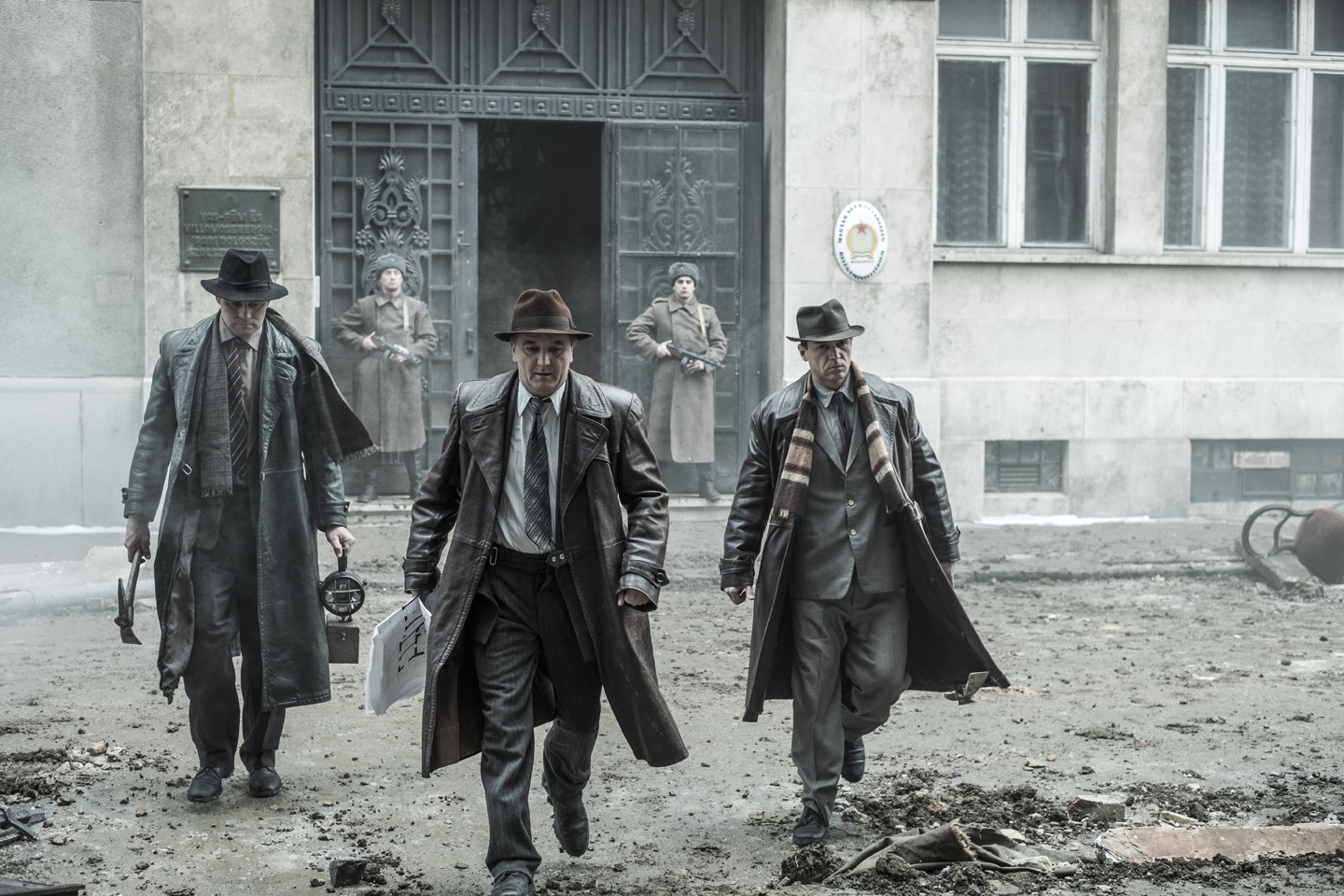Patronage Programme films win big at Film Week

At the fifth Hungarian Film Week, all three award winners in the made-for-TV category, namely Trezor (Vault), Curtiz and A színésznő (The Actress), were produced under the Patronage Programme. Set during the Hungarian Revolution of 1956, the adventure-filled Trezor was virtually showered with awards in addition to winning the best made-for-TV picture title. Awards were also presented to Zsolt Anger for best leading actor, Péter Scherer for best supporting actor, Norbert Köbli for best screenplay, István Király for best editing, András Nagy for best cinematography, Attila Pacsay for best soundtrack and Gábor Balázs for best sound editing.
Curtiz, Tamás Yvan Topolánszky’s film inspired by the life of Casablanca director Michael Curtiz, also did exceptionally well. It won the best costume design, best makeup and best visuals awards. Also produced with a grant under the Patronage Programme, László Vitézy’s made-for-TV film inspired by the life of legendary ‘50s and ‘60s actress Margit Bara, A Színésznő, brought recognition for Viktória Szávai for best leading actress and Ildikó Tóth for best supporting actress.
In the documentary category, Árpád Bogdán’s Gettó Balboa (Ghetto Balboa) was selected the best, while A mindenség szerelmese (The Lover of Allness) by Anna Juhász, depicting the life and times of poet Ferenc Juhász won the best sound award. Both films were produced with grants under the Patronage Programme, as were the winners in the non-fiction category: Vad Balaton (Wild Lake Balaton) and Rotschild Klári legendái (Legends of Klári Rotschild).
Winners in the animated category also included films produced under the Patronage Programme: episode 13 in Líviusz Gyulai’s series Egy komisz kislány naplója (A Naughty Girl’s Diary), produced under the Attila Dargay tender, won best screenplay. All the awards in the television series category was taken by HBO’s Aranyélet (Golden Life).
The winner in the feature category was Rossz versek (Bad Poems), receiving awards for best feature film, best director and best editing, as well as best supporting actress that went to Lili Monori. Napszállta (Sunset) also did extremely well, earning awards for best cinematography, best visuals, best costume design, best makeup, best soundtrack and best sound. Géza D. Hegedűs was recognised as best leading actor, while Zsolt Nagy was selected best supporting actor, both for their performance in A Hentes, a Kurva és a Félszemű (The Butcher, the Whore and the One-Eyed Man). Zsófia Szamosi garnered the award for best leading actress for her performance in Egy nap (One Day), with the same film winning best first picture and best screenplay. In the feature animation category, Milorad Krstić’s Ruben Brandt, a gyűjtő (Ruben Brandt, Collector) won, with the people’s choice award going to BÚÉK (Happy New Year), a remake of the Italian comedy Perfetti sconosciuti (Perfect Strangers).
The Hungarian Film week was held between 22 and 28 April with support from the Media Council of the National Media and Infocommunications Authority this year, too, and featured over 200 competing films that were released last year.